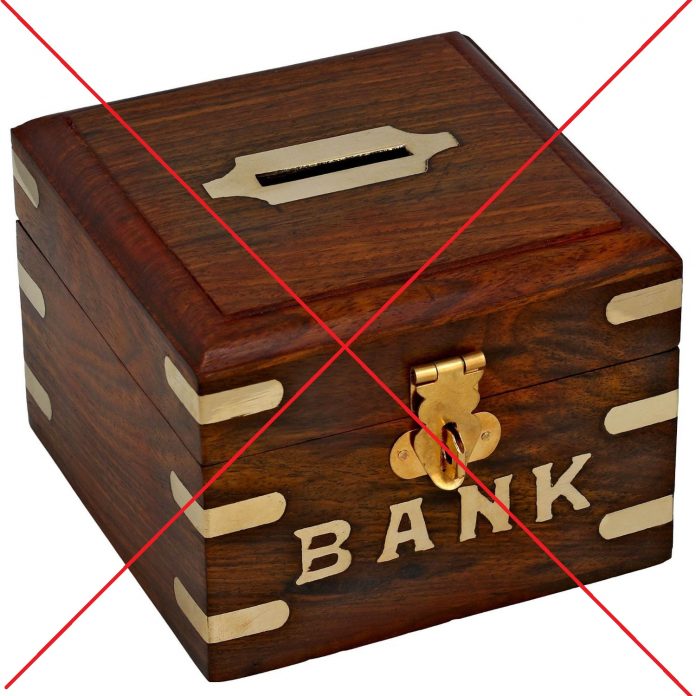BY GEORGE MANGENI
We are finishing 2016, and for all those who have been diligently saving, it’s good to see you pop open those Home Banks and count your coins and notes. Allow me to be the devil’s advocate here and so I won’t sugar coat any facts on matters finance especially on management of your savings.
First and foremost, as you happily open that Home Bank, reality is that you have lost on average of 6% of that money.
Welcome to this monster we call INFLATION. What this means is that if you have been putting all your savings diligently in that home bank for a whole year, you have also been diligently losing an average of 6% to inflation, meaning you are no different from our ancestors who used to hide their money under rocks for fear of losing it to thieves.
Only that in our case, the thief is called TIME. The longer you stuff your money inside that home bank, the more you lose. It gets worse if the amount in that home bank is a pretty good sum…because in this day and age, there is so much more you can make from those savings without even breaking a sweat.
Which brings us to; How to Grow your Savings Passively. I am carefully using the word “passively” because many here are probably in full-time employment and have little time to actively run or manage side business or as we call them on the streets; side-hustles.
Having personally tried to juggle full time employment and active side hustling I know the struggle that comes along; most of the times you need to get back to your pocket to pay for shop/stall rent, salaries etc. and at the same time your employee(s) may not be that much trustworthy and so on and at the end of the year when you do the math, you honestly have no idea if your business is making much or if you’re just keeping it around as a source of pride so that you don’t feel left out when your friends are enthusiastically talk about their “side hustles.”
How do you grow your savings passively?
With specific focus on Kenya, there are four main asset classes;
– Real estate
– Equities (shares or stock market)
– Treasury Bills & Bonds
– Money Markets
– Crypto-currencies (this is currently synonymous with Bitcoins, a new entrant in the investment ecosystem and is currently up by about 109% since Jan 2016)
We can discuss individual asset classes and how to invest in them, but that is for another day; I am sure all you guys can read and so take that as your homework. What I will highlight however is the nature of these investments in terms of risk and reward.
Real estate, stock markets and crypto currencies have high return factors, although land is more safer due to its physical state. Returns from the stock market are very highly dependent on individual understanding of the capital markets business which if done well will always trounce other asset classes due to its volatility advantages.
Safer investments, and which in this case should replace home banks are money markets (unit trusts). Currently annual returns on unit trusts range between 5% – 11% p.a. and this is way better than keeping money in the house; be it in a home bank or under the mattress.
First of all it beats inflation (at a return of 11% p.a. you have made about 4% net of inflation as compared to -6% if you had kept it in the home bank). Most unit trusts have very low entry fees, I personally invest in one where minimum start/registration is Ksh. 2,500 and top-ups can be done anytime via Mpesa with min top-ups of Ksh. 1,000. So if you get that random unplanned-for 1k, dont take it to Yorghut Planet; send it your savings account.
Treasury Bills & Bonds fall into this category of safe investments as well, but I believe the entry requirements are what puts most people off (minimum for T-Bills is Ksh. 100,000 while for bonds is Ksh. 50,000).
The dominant factor with safe investment is that your capital is always safe; the only variation is on the returns on interest rates which varies directly with general economic trends. These are good investments especially for money you intend to use in the short term, or for small amounts of money you have in savings.
Crypto-Currencies are probably the least understood of them all; a mention of Bitcoins elicits such sentiments as pyramid schemes, white man propaganda etc.
Truth however is that currencies such as bitcoins have been around for a while now and if anyone has been monitoring the general global economy then they will understand how Bitcoins are playing a huge part in fending off volatility risks among the mainstream currencies like USD, GBP, Yuan, KSh, Yen etc.
It’s now a global currency and most businesses dealing in cross-border trades especially import/export will practically understand how these crypto-currencies help minimize forex losses. Problem with Kenyans is that we always trash anything we don’t understand. Sisi ni wajuaji sana.
To finish it off, you bought a home bank because you didn’t know you could do better. Knowing what you know now, what will you do with your finances in 2017 and beyond?









